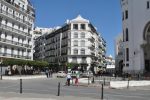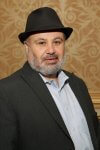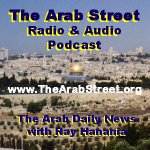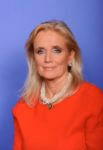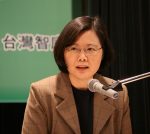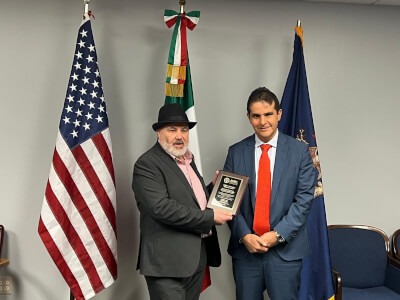Algeria At The Crossroads, Normal Bro!
The adjective “normal,” so endlessly repeated, is a tool the people are over-using or simply misusing as a conditioned response to the general sociopolitical mood of the country.
By Abdennour Toumi
I have been thinking about reporting on my stay here in Algeria. The Arab Daily News readers in the U.S. and MENA would enjoy hearing about something related to the democratic process, the political and economic progress that are taking place at the terminal station of the Arabs’ Spring train.
Yet the institutions seems to be functioning regularly, despite the President’s illness and fatigue, and he continues to exercise his constitutional duties, showing up to opening ceremonial events, meeting his cabinet’s members and receiving international dignities.
Official Algerian TV, from the editorial line is about fair and controlled news, everything looks perfect to the point one wonders in which city or country he/she is living, whereas the so-called independent TVS are about voyeurism and entertainment news.
The big “absents” are the Islamists and the liberals of the FFS and the RCD parties, they are lost in the message. Their discredited leaders are in a profound partisan-identity crisis, lacking a sustainable political program and strategy as that of the liberals. As for the Islamists’ base, however, they are massively present in the capital’s streets and Mosques; they are less politically involved, but are more and more oriented toward small business (bazaar and parallel economy style).
One hasn’t felt any breeze or even the slightest southern wind blowing that would possible describe events in the direction of seeing the “big change.” In this regard, next spring legislative and locals (Departmental and Municipal) elections are scheduled in April, 2017. As normal Algerians would say, everything is going well and NORRRMMALL (it is written as it is pronounced in colloquial Algerian with a heavy French accent, a rolling R and an extended M).

Note that the majority of Algerian voters with whom I spoke about these elections, from college students to the neighborhood grocery store keeper, are expressing their annoyed frustration and categorical refutation.
An “annoying” adjective to the point that it annoyed me a great deal.
Meanwhile people from the street vendor to the high-level public servant of the regime use “normal,” not as an adjective, but as a statement of a social mood. Interestingly, even a person who doesn’t want to say “normal” in French says it in Arabic (aa’adee) in a corresponding context.
in a moment one would think people were referring to the prestigious French Ivy school, Normale Sup. The Algerian education system is in such a deep hole as is Public Health.
Recently an odd, catchy item in the news is tickling Algerians’ underarms. A medicinal product, supposedly a “miracle” treatment against diabetes, was put on the market last summer. In the last couple of weeks, it was recalled and withdrawn from the Algerian market by the Health Minister’s decision and the National Pharmacists Doctors Order for threatening health consequences to a patient’s life — the brand name, Rahmat Rabi (Allah’s Blessing), so the food compliment for diabetes went from a blessing to a curse.
Another episode is also stirring public opinion like the massacre of the 2016 Baccalaureate exam. Recently the Public School Boards are denouncing the private tutoring phenomena, a habit that looks like a parallel and illegal schooling system.
Public Hospitals and public schools are in dire situations.
Indeed, I asked a journalist of el-Khabar daily newspaper, what is going on with education in this country? His answer was “norrrmmall,” with an ironic smile, as if he knew about my paper’s story…Then he went on to tell me the Education system is an ideological arena, on one hand the Arabophones are blaming the Francophones for the frenchification/westernization of the society’s value system.
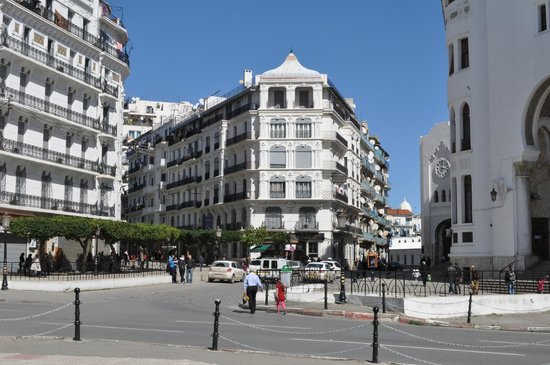
On the other hand, the latter blames the Arabophones/Islamists for the Islamization of the entire education system, ultimately the society! Though this ideological current is represented by the Minister herself in the eyes of the Arabophones and the Islamists. However, the lame duck Education Minister genuinely wants to reform and break down the system’s taboo, mentality and management; as a result she faces a wall of obstacles from both antagonists and consequently discovers that “reforms” rhymes with “norms” and bold public policy.
Once, on a rainy day, I was on a bus heading to Algiers City Center. I paid my fare, it was 40.DA. Algerian dinar hits a record low as the Central Bank works to curb imports. I looked at the young man waiting for the ticket to prove I’m legally on this bus. Well, I didn’t get that ticket. I stared at a gentleman sitting next to me and asked naively, “they don’t give tickets on this bus?” He smiled and told me its NORRRMMALL khou – (it’s normal, bro).
At that moment I lost my patience with this “norrrmmall” because I became “abnormal” in their eyes.
Since then, I decided not to use “normal” in any circumstance. I prefer to use “ordinary” because ordinary people are doing amazingly “normal” things. For instance, they are writing petitions, protesting about the environment, and surviving socioeconomic issues. For example, the public refuse dump that was moved from the east part of Algiers to the west is a so-called “well-off suburb” of the city.
However, the adjective “normal,” so endlessly repeated, is a tool the people are over-using or simply misusing as a conditioned response to the general sociopolitical mood of the country.
Algeria is linguistically trilingual (Arabic, French and Tamazigh), add to that the cultural linguistic (lingua franca) characteristic of the Algerian colloquial. So, the word “normal” derives from normal as in Latin, which classically means “right.” “Right” also is a base meaning to be governed or ruled by law. This makes one wonder why Algerians are misusing “normal.” If the rules of law don’t follow the pattern of social behavior, the community will not benefit from any political civility, hence respect.
In this instance, one has to be very patient to drive in Algiers and its agglomeration. There are stop lights, police control the traffic, highways are well-paved and marked. Yet the local press portray drivers as “route terrorists.” Literally they terrorize the “normal” drivers. I ask, what is wrong with these maniacs? You get the answer.
Even the President and his cabinet’s members are annoyed by this “norrrmmall.” He himself knows about the lexicon and usage of the word. Do they know that “normal” and “normality” in politics make people believe in the seemingly endless duration of the process of power, which has created an institutional and colloquial disorder?
The semantic of this term is no less ordinary or remarkable along with its terminology and leads to the following: Obey the norm, follow the rule.
Regarding the sociopolitical context of “normal” the country is at a cross roads. The ghost of terrorism is still haunting the country’s national security and international credibility. Just last week, the U.S. State Department issued a Travel Warning update to the U.S. citizens in Algeria to avoid certain regions, like the south and the northeast (la Grande Kabylie).
One could argue that between people who seem lost in communication and a regime that has lost its political traction, it is difficult to interpret “normal” as a straightforward concept. To do so would be to provoke everyone’s comprehension of “normal” to define the country’s linguistic and political “norms.”


- The Israeli-Palestinian Conflict: Is the Neither-Peace-nor-Security As-sumption Dominating Again? - June 7, 2021
- Algeria: “I Can See Clearly Now” - August 5, 2019
- Majesty Mohammed VI and General Gaïd Salah Tear Down This Wall! - July 29, 2019













